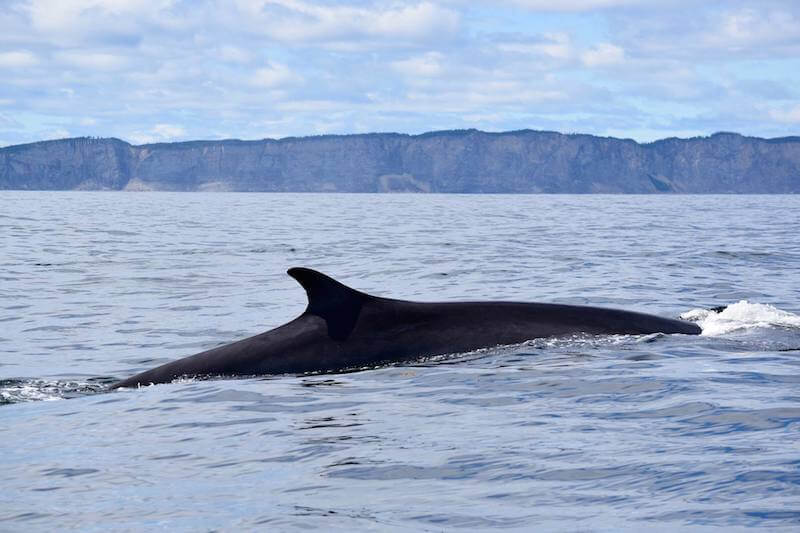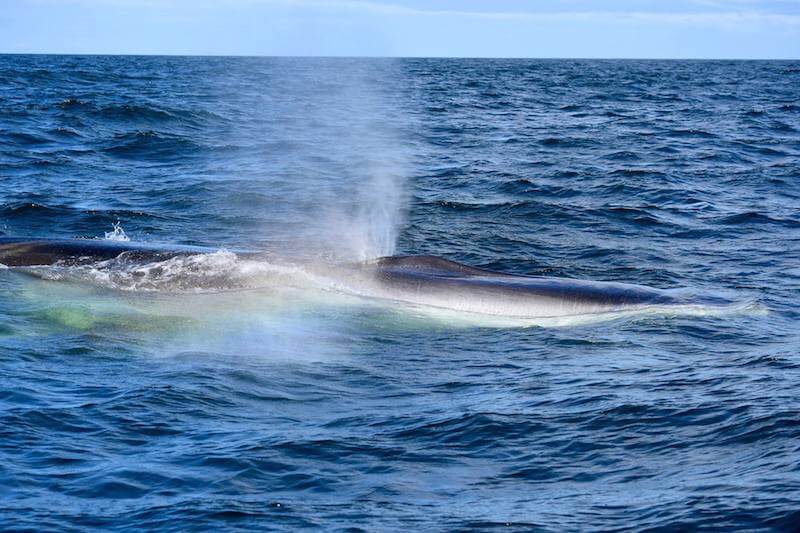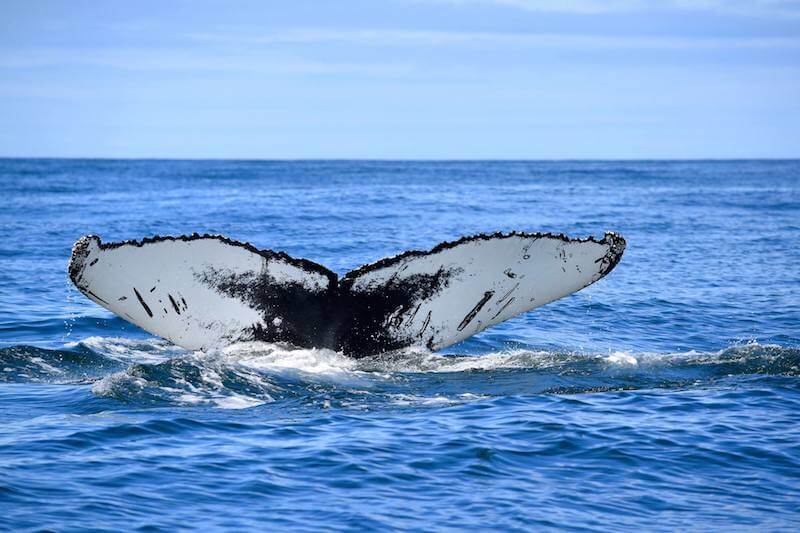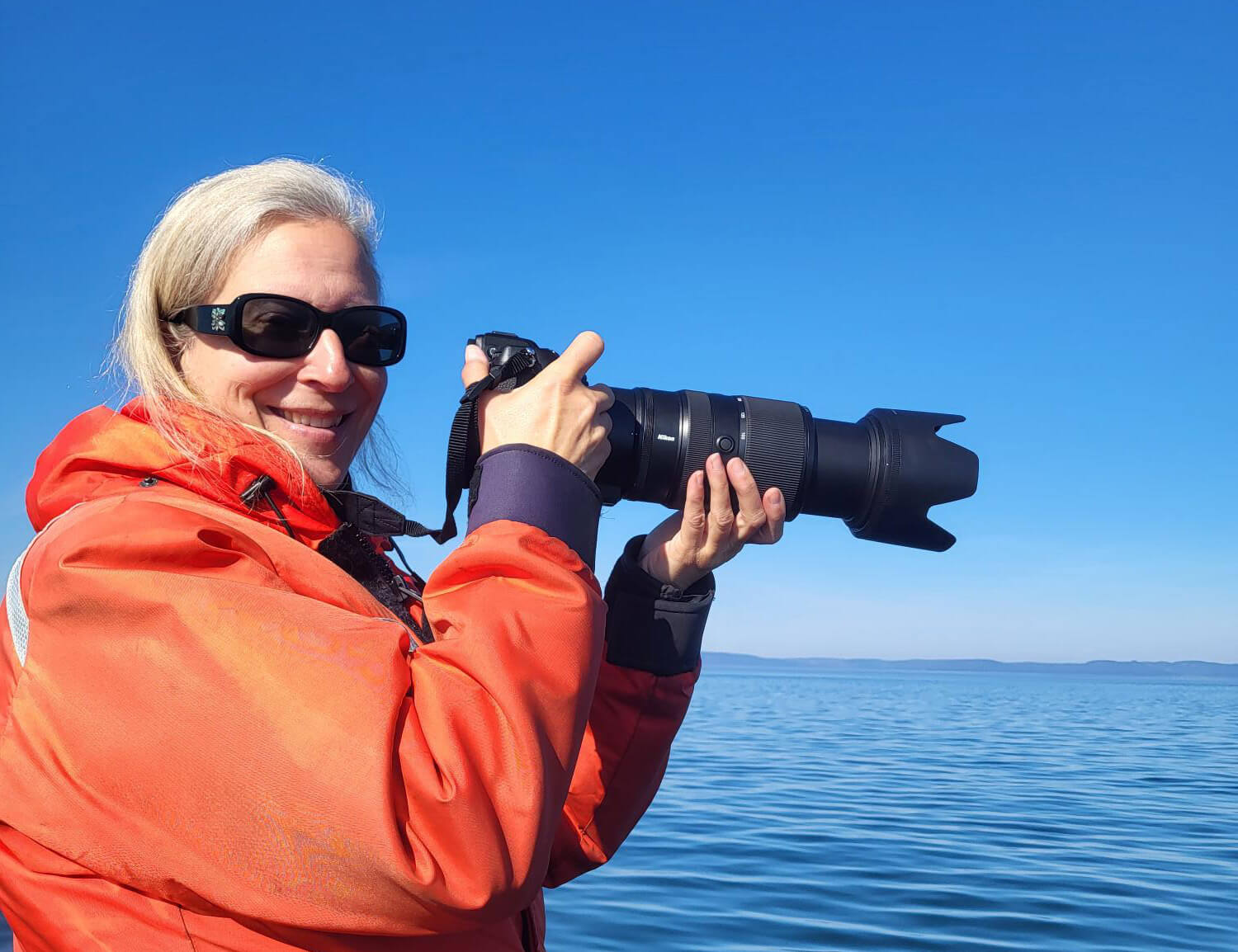Monday morning, August 7. My vacation kicks off and pushes me to the opposite coastline, in the direction of the Gaspé Peninsula. I take this opportunity to visit René Roy, a contributor to the Mingan Island Cetecean Study and editor of Field Notes for Whales Online. Luck is on my side, as René is heading out to sea for a minke whale photo-ID session. We set course for American Bank, sailing along a shoal that runs along a sort of imaginary line from Cap Gaspé, an area of upwelling and excellent feeding grounds for large whales.
After two good hours of sailing in the swell left by the winds the day before, we find that the area that held whales just one day ago is now empty. We scan the horizon. To the east, facing the Forillon cliffs, we spot several tall white columns. We knew that the old male blue whale B311 was in the area and we secretly hoped to encounter him that day… So we head toward them.
Having arrived where we spotted the spouts a few minutes earlier, we realize that we’ve landed in a sort of “whale soup”! Minke whales are zooming by everywhere and in all directions, and there are at least 6-7 backs of fin whales, some in pairs, some solo. They are streamlined and fast, sometimes swimming in straight lines and other times performing U-shaped dives typical of feeding behaviour. The greenish waters of the Gaspé allow us to see below the surface their white jaw, pectoral fins, and even one of their caudal fins, flapping under the water. For the first time in my life, I realize the size of these beasts…
A balloon-shaped blast rises from the surface, and a tail glimmers in the sun on the horizon: it’s our first humpback of the day! The tail of this beautiful adult is almost entirely white, with a well-defined colour pattern. Once back on land, René identified it in the MICS catalogue as H782. This whale was first observed in the Mingan sector in 2011 and again in 2016 in the Estuary by researchers of the Maurice Lamontagne Institute.
A few metres away, a humpback calf takes a breath and dives again without showing its tail. We all had the impression that it was a first-year calf. Our hunch is confirmed when we observe it later that afternoon, swimming side by side with H782! What a privilege to be able to observe a mother and her calf together in the Gulf of St. Lawrence!
Amongst these majestic humpback whales, the biggest breath of all erupts into the sky … The big blue is here: solitary, fast, and not easily approached. B311 has been in the area since the beginning of June; today, he is the only blue whale in the sector. The following day, René would observe 6 to 8 more, but B311 was not amongst them. The old male is cruising along at full speed, providing us with a brief glimpse of his back and contracting muscles. A powerful force of nature…
We return to shore with our heads full of vivid images and the sound of spouts still resonating in our minds, passing en route harbour porpoises rolling in the waves, northern gannets hovering over the water in search of fish, Leach’s storm-petrels flying like planes, guillemots pattering over the water, with the vast Forillon cliffs as a backdrop.
Once again, I realize the privilege we had on that day to observe these giants of the seas.







